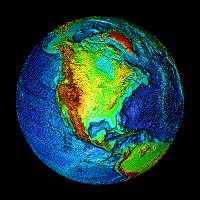EU Cod Stocks Facing Collapse
Posted by feww on October 31, 2013
Cod and whiting in the West of Scotland risk collapse: EU Fisheries Commission
The European Commission has proposed a continued ban in 2014 on landings of cod and whiting off Scotland’s Atlantic coast in an attempt to avert a collapse.
“Cod stocks in the Irish Sea and the Kattegat continue to be in a dire state… Sole in the Irish Sea is at extremely low levels. Advice for haddock in the Celtic Sea demands a considerable TAC cut … Cod and whiting in the West of Scotland, subject to extremely high rates of discarding, are at a risk of collapse.” EU Fisheries Commission reported.
Cod stocks off most parts of Britain, Ireland and in the Bay of Biscay are also in a dire state, which means quotas should be reduced by up to 30 percent, according to the Greek EU fisheries commissioner.

Cod – gadus morhua. The British fish and chips industry is heavily dependent on cod, the country’s most consumed fish. International disputes over the prized species has so far led to two rounds of naval clashes between Britain and Iceland in the 1950s and 1970s.
“For stocks where data is not good enough to properly estimate their size, the Commission proposal reflects the advice from the International Council for the Exploration of the Sea (ICES) to adapt the TAC up or down by a maximum of 20%. Following a Council decision last year on precautionary reductions, TACS are proposed at the same level as in 2013 for 21 of these stocks,” said the Commission.
NOTES:
- Total allowable catches (TACs) are catch limits that are set for most significant commercial fish stocks. TACs are proposed by the EU Commission on the basis of scientific advice on the state of the stocks concerned and decided on by the Council of Fisheries Ministers.
- TACs are set annually for most stocks and every two years for deep sea species.
- The TACs are shared between EU countries under a system known as ‘relative stability’ which keeps national quotas stable in relation to each other.

Leave a comment